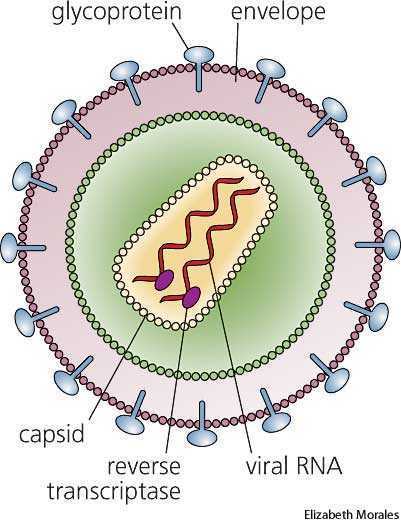
noun, plural ret·ro·vi·rus·es.
- any of a family of single-stranded RNA viruses having a helical envelope and containing an enzyme that allows for a reversal of genetic transcription, from RNA to DNA rather than the usual DNA to RNA, the newly transcribed viral DNA being incorporated into the host cell’s DNA strand for the production of new RNA retroviruses: the family includes the AIDS virus and certain oncogene-carrying viruses implicated in various cancers.
noun
- any of several viruses whose genetic specification is encoded in RNA rather than DNA and that are able to reverse the normal flow of genetic information from DNA to RNA by transcribing RNA into DNA: many retroviruses are known to cause cancer in animals
1977, earlier retravirus (1974), from re(verse) tra(nscriptase) + virus. So called because it contains reverse transcriptase, an enzyme that uses RNA instead of DNA to encode genetic information, which reverses the usual pattern. Remodeled by influence of retro- “backwards.”
n. pl. ret•ro•vi•rus•es
- A virus of the family Retroviridae.
- Any of a group of RNA viruses whose RNA is used as a template inside a host cell for the formation of DNA by means of the enzyme reverse transcriptase. The DNA thus formed is inserted into the host cell’s genome. Most retroviruses can cause cancer. Retroviruses also include HIV.
A virus, such as HIV, whose RNA codes for DNA, which is then inserted into some part of the host’s DNA. This virus comes with its own special enzyme, called reverse transcriptase, which facilitates this insertion.
 Liberal Dictionary English Dictionary
Liberal Dictionary English Dictionary